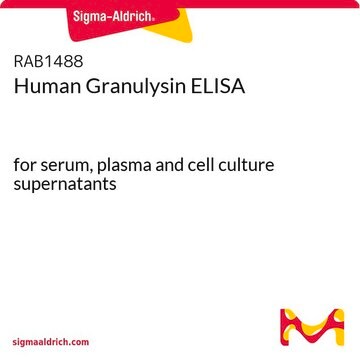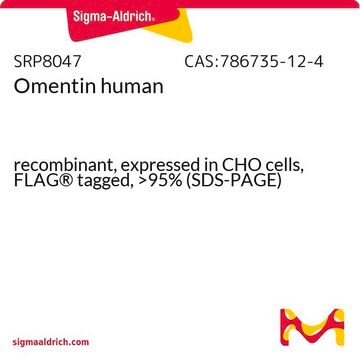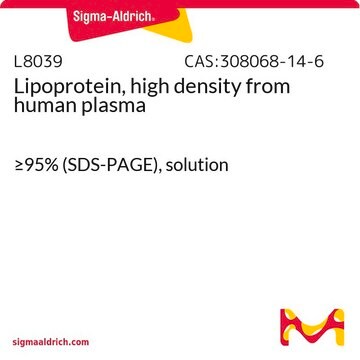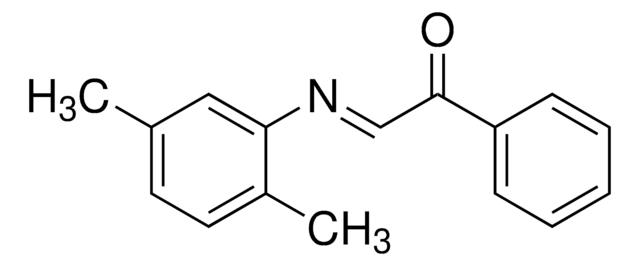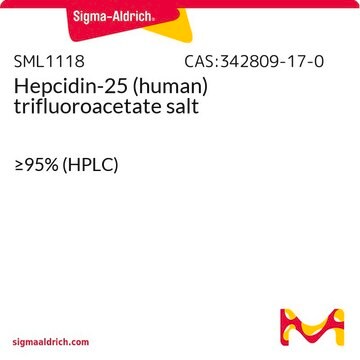SRP6002
Chemerin human
recombinant, expressed in E. coli, ≥98% (SDS-PAGE), ≥98% (HPLC)
Synonym(s):
HP10433, RARRES2, TIG2
Sign Into View Organizational & Contract Pricing
All Photos(1)
About This Item
Recommended Products
biological source
human
recombinant
expressed in E. coli
Assay
≥98% (HPLC)
≥98% (SDS-PAGE)
form
lyophilized
mol wt
16.0 kDa
packaging
pkg of 25 μg
impurities
Endotoxin, tested
NCBI accession no.
UniProt accession no.
shipped in
wet ice
storage temp.
−20°C
Gene Information
human ... RARRES2(5919)
General description
Chemerin, which is also known as retinoic acid receptor responder 2 (RARRES2), is a chemoattractant expressed in white adipose, liver and lung tissues. It is an immunomodulating factor. The protein is a ligand for the G-protein coupled receptor known as ChemR23 (or chemokine-like receptor-1), which is expressed mainly on dendritic cells, macrophages and some adipocytes. The gene encoding it is localized on human chromosome 7q36.1. Recombinant human Chemerin, produced in Escherichia.coli, is a non-glycosylated protein containing 138 amino acids and having a total molecular mass of 16kDa.
Biochem/physiol Actions
Chemerin activates chemerin-like receptor 1 (CMKLR1) and stimulates chemotaxis in macrophages, natural killer cells and immature dendritic cells. It is also involved in the activation of extracellular signal-regulated kinases, stimulation of blood vessel formation, migration and invasion.
Physical form
Lyophilized from 0.2% TFA.
Reconstitution
Centrifuge the vial before opening. When reconstituting the product, gently pipet and wash down the sides of the vial to ensure full recovery of the protein into solution. It is recommended to reconstitute the lyophilized product with sterile H?O to a concentration of 0.1mg/ml, which can be further diluted into other aqueous solutions.
Storage Class Code
13 - Non Combustible Solids
WGK
WGK 3
Flash Point(F)
Not applicable
Flash Point(C)
Not applicable
Certificates of Analysis (COA)
Search for Certificates of Analysis (COA) by entering the products Lot/Batch Number. Lot and Batch Numbers can be found on a product’s label following the words ‘Lot’ or ‘Batch’.
Already Own This Product?
Find documentation for the products that you have recently purchased in the Document Library.
Jun-xian Zhou et al.
Acta pharmacologica Sinica, 35(5), 653-663 (2014-03-25)
The chemerin receptor CMKLR1 is one type of G protein-coupled receptors abundant in monocyte-derived dendritic cells and macrophages, which plays a key role in the entry of a subset of immunodeficiency viruses including HIV/SIV into lymphocytes and macrophages. The aim
The commensal skin microbiota triggers type I IFN-dependent innate repair responses in injured skin.
Jeremy Di Domizio et al.
Nature immunology, 21(9), 1034-1045 (2020-07-15)
Skin wounds heal by coordinated induction of inflammation and tissue repair, but the initiating events are poorly defined. Here we uncover a fundamental role of commensal skin microbiota in this process and show that it is mediated by the recruitment
Rui-Li Zhang et al.
Journal of cellular biochemistry, 120(12), 19621-19634 (2019-07-20)
Chemerin, a chemoattractant protein, is involved in endothelial dysfunction and vascular inflammation in pathological conditions. In a recent study, we observed the upregulation of chemerin in endothelial cells following in vitro treatment with Treponema pallidum. Here, we investigated the role
Association of Polymorphisms in STRA6 and RARRES2 Genes with Type 2 Diabetes in Southern Han Chinese.
Huang HW
BioMed Research International, 2016, 6589793-6589793 (2016)
Chen Huang et al.
Molecular therapy oncolytics, 18, 602-612 (2020-10-03)
The adipokine chemerin has been considered an important regulator of tumor immune surveillance. Chemerin recruits leukocytes through the receptor CMKLR1 to improve clinical outcomes of tumors and overall patient survival, but the role of GPR1 in tumors has not been
Our team of scientists has experience in all areas of research including Life Science, Material Science, Chemical Synthesis, Chromatography, Analytical and many others.
Contact Technical Service

